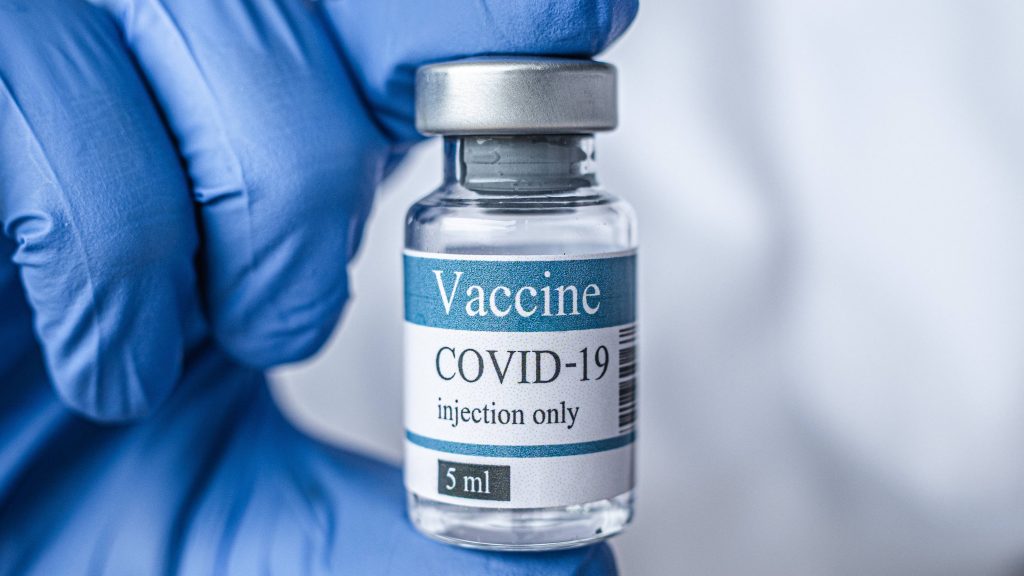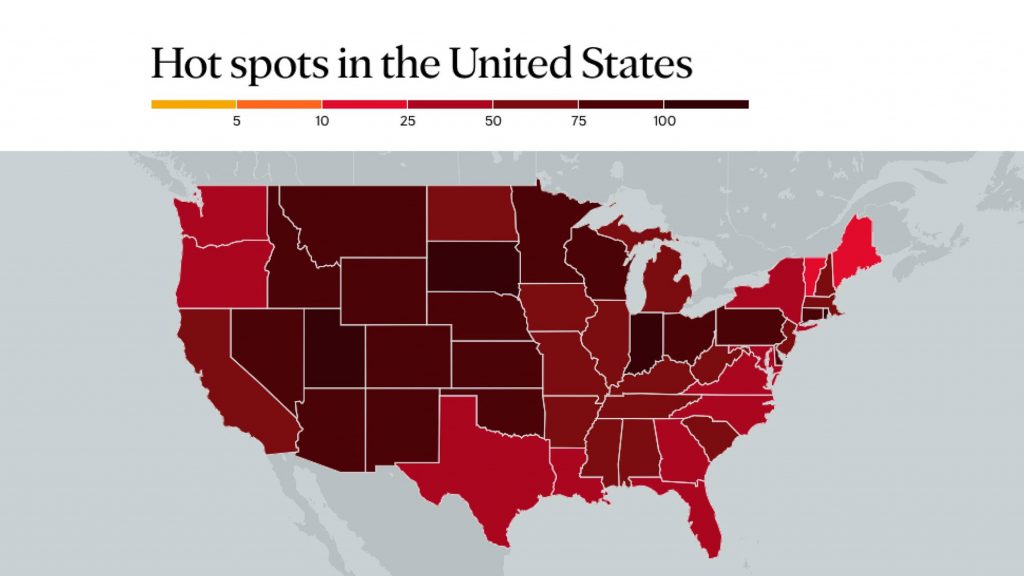
The COVID-19 vaccine is an important tool to help stop the ongoing pandemic, along with masking and physical distancing. Mayo Clinic's COVID-19 Vaccine Allocation and Distribution Workgroup have put together a list of questions and answers about the vaccine to help provide a better understanding of what you may expect.
Who should be vaccinated against COVID-19 infection?
Vaccination will be recommended for everyone, but supplies will be limited at first. Federal and state authorities call for health care personnel to be offered vaccine in the first phase of the program, starting with hospital workers, emergency responders and long-term care staff.
The initial priority will be to vaccinate health care personnel who are at high occupational risk for exposure to COVID-19 and those working in roles that are essential to the COVID-19 response. Mayo Clinic expects that the program will expand to all health care personnel soon, as well as patients at high risk of COVID-19 infection and complications.
Mayo Clinic will follow the guidance provided by federal and state authorities to prioritize groups for vaccinations. The guidelines have been developed by numerous national bodies, including the Advisory Committee on Immunization Practices and the National Academies of Science, Engineering and Medicine.
To develop a strategy for equitable allocation of limited vaccine supplies, these guidelines consider the risks of:
- Acquiring infection.
- Severe morbidity and mortality.
- Negative societal effects.
- Transmitting infection to others.
As availability improves, vaccines will be offered to all others in accordance to federal and state guidelines.
When will Mayo Clinic start vaccinating people for COVID-19?
The first COVID-19 vaccine to be available under federal emergency use authorization is expected sometime in December or early January 2021. At that time, Mayo Clinic will begin vaccinating health care staff members at high occupational risk. Limited supplies may mean that the program initially focuses on specific high-risk groups, but the program will expand to include all staff and patients. Mayo Clinic anticipates having enough vaccine for everyone who wants it in 2021.
Is the COVID-19 vaccine safe?
Mayo Clinic will recommend the use of those vaccines that it deems to be safe. While there are many COVID-19 vaccine candidates in development, early interim data are encouraging for BNT162b2, the vaccine developed by Pfizer Inc. and BioNTech SE. This is likely to be the first vaccine that the Food and Drug Administration (FDA) authorizes for emergency use. This vaccine was created using technology based on the molecular structure of the virus. This vaccine will be free from materials of animal origin and synthesized by an efficient, cell-free process without preservatives. It has been studied in approximately 43,000 people.
To receive emergency use authorization, the biopharmaceutical manufacturer must have followed at least half of the study participants for at least two months after completing the vaccination series, and the vaccine must be proven safe and effective in that population. In addition to the safety review by the FDA, the Advisory Committee on Immunization Practices has convened a panel of vaccine safety experts to independently evaluate the safety data from the clinical trial. Mayo Clinic vaccine experts also will review available data. The safety of COVID-19 vaccine is being closely monitored by the Centers for Disease Control and Prevention.
What are the side effects of the COVID-19 vaccine?
Early-phase studies of the Pfizer/BioNTech vaccine show that it is safe. However, about 15% of people developed transient local symptoms and half developed transient systemic reactions, primarily headache, chills, fatigue, muscle pain or fever. These transient reactions, which indicate a person's immune system is responding to the vaccine, resolved without complication or injury.
How effective is the COVID-19 vaccination?
Although phase 3 trial results are not available, experimental vaccine interim data indicate 90% efficacy after two doses. Efficacy is the measure of effectiveness obtained from a randomized controlled clinical trial. Further details regarding the effectiveness of the vaccine, such as how long the vaccination offers protection, are not yet available.
How many doses does COVID-19 vaccination require?
With the Pfizer/BioNTech vaccine, two doses are given 21 days apart. Most other COVID-19 vaccines that are expected over the next few months are anticipated to be given over two doses 28 days apart. So far, only one vaccine can be given as a single dose.
Will I have a choice of which vaccine I will get?
At this time, patients cannot choose which vaccine to receive. Given initial limited supplies, Mayo will distribute available vaccines to the highest risk groups based on guidance from Public Health Authorities.
Aren't masking, social distancing and self-quarantining reasonable alternatives to COVID-19 vaccination?
Given the extent of COVID-19 spread in the U.S., masking, social distancing and self- quarantining will not be enough to contain the pandemic. Developing large-scale immunity in the community through vaccination is key to stopping the pandemic.
Everyone will need to continue to take precautions, such as masking and physical distancing, until the spread has stopped. Until then, COVID-19 spread can continue in the community from people who have or don't have symptoms.
A person can be contagious for as many as 14 days without symptoms. A person can develop symptoms but be contagious before symptoms start. Most healthy adults may be able to infect others, beginning two days before symptoms develop and up to 10 days after becoming sick.
Will my primary provider offer vaccination for COVID-19?
Your primary care provider will not offer vaccination for COVID-19 at this time. The COVID-19 vaccine will be available to patients in a phased approach. The vaccination will be available to Mayo Clinic primary care patients at some point in the future, likely at centralized locations.
Can those who have had COVID-19 get vaccinated for COVID-19?
Yes. Mayo Clinic recommends getting vaccinated for COVID-19, even in those who have had COVID-19 previously. However, those that had COVID-19 should delay vaccination until about 90 days from diagnosis. People should not get vaccinated if in quarantine after exposure or if they have COVID-19 symptoms.
Can I get the COVID-19 vaccine if I got the flu vaccine?
Yes. Mayo Clinic recommends all its employees and patients get the flu vaccine and when it becomes available, the COVID-19 vaccine.
Will persons who get the vaccine still have to wear a face masks?
Yes. While the vaccine is highly effective at preventing symptomatic and severe disease, it is not 100% effective, and it is not yet known how well it prevents asymptomatic infection, or how long its effects will last. Everyone will need to continue taking precautions like masking and physical distancing until the spread has stopped.
Is the vaccine safe for those with compromised immune systems?
Vaccines can be taken by people with weakened immunity like HIV patients or other immunosuppressed conditions. They may not get the same effective response as someone without immune compromise.
Can a previously healthy older person get sick with COVID-19 after taking the vaccine? Do the benefits outweigh the risks in this population?
The vaccines are not 100% effective but they are far better than not getting vaccine. The benefits certainly outweigh the risks in healthy older persons. One cannot get COVID-19 infection from the initial COVID-19 vaccines Mayo Clinic will receive as they are inactivated vaccines and not live vaccines.
Can international patients come to Mayo Clinic just to get vaccinated for COVID- 19?
At this time, international patients cannot come to Mayo Clinic just to get vaccinated for COVID-19. Given initial limited supplies, Mayo Clinic is allocated vaccine for patients in its region. Mayo will distribute vaccines to the highest-risk groups based on guidance from public health authorities. As supplies increase in 2021, the program will expand to include more staff and broader patient populations.
What if international patients are at Mayo Clinic already and eligible for the vaccine, can they get it?
Eventually, once there’s enough vaccine, Mayo Clinic will offer the vaccine to all of its patients including its international patients. For now, Mayo Clinic will abide by federal and state guidelines to vaccinate those employees and patients in the highest tiers of risk.
Will the COVID-19 vaccine be free?
Yes, the COVID-19 vaccine will be free. However, vaccine administration charges will be billed to insurance with no out-of-pocket costs incurred by patients or staff. Patients and staff will need to bring their insurance card when they receive the vaccine.
Can people with an egg allergy receive the COVID-19 vaccine?
Neither the Pfizer/BioNTech nor the Moderna Inc. vaccine contain egg.
The side effects for the COVID-19 vaccine are identical to the virus itself. If people are vaccinated and develop side effects, would they have to be tested for COVID- 19?
Vaccine recipients will be provided with guidance on how to interpret side effects and what actions they should take following vaccination.
Read more: COVID-19 vaccine and what to do about side effects.
Learn more about: Tracking and trending COVID-19

Information in this post was accurate at the time of its posting. Due to the fluid nature of the COVID-19 pandemic, scientific understanding, along with guidelines and recommendations, may have changed since the original publication date.
For more information and all your COVID-19 coverage, go to the Mayo Clinic News Network and mayoclinic.org.







